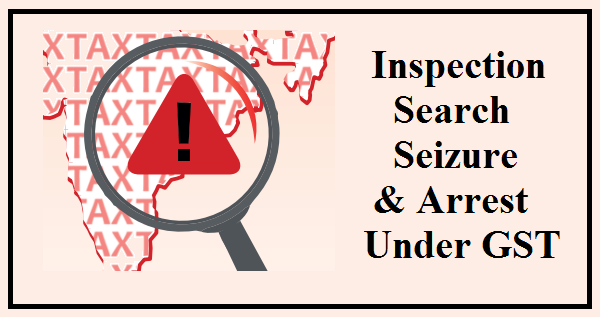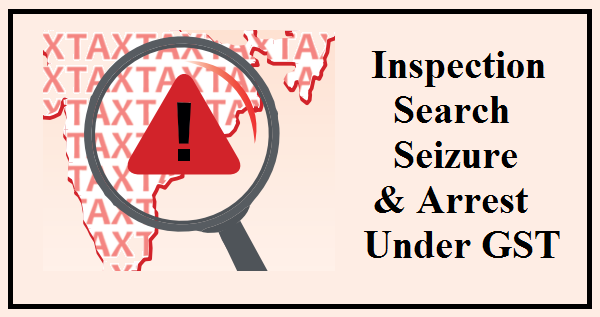Power of Search, Seizure and Arrest under GST should not be used to Harass Taxpayers
In any tax administration, the provisions for inspection, search, seizure and arrest are provided to protect the interest of revenue department as well as genuine taxpayers and as a restraint for tax evasion.
However, it is equally important that said provisions relating to search, seizure and arrest are not misused by those in position of power but in recent times, we have seen that the department is using such provisions arbitrarily and in routine & mechanical manner, thereby harassing the genuine and honest taxpayers. Any sort of coercive and pressurizing tactics cannot be justified in the name of search and seizures under the provisions of GST.
The power of search and seizure comes with “Reason to believe” (and not reason to suspect) and should be exercised by the GST official in true letter and spirit. Although the term “Reason to believe” has not been defined anywhere under the GST Law but the various Courts at multiple instances stated that the proper officer must have concrete evidence to believe that eventualities as provided in sub-clause (a) or (b) of Section 67(1) of the CGST Act have occurred viz. suppression of supply of goods/ services, wrongful availment of credit, etc. The belief of proper officer should be based on some actionable material that should be recorded in writing.
Furthermore, the summons must be issued as a last resort and GST authorities should refrain from calling on information and documentation already provided or submitted through online GST return filed by taxpayers and summons should not be issued in casual manner and asking presence of MD, CEO, CFO at first instance, which could otherwise be submitted or presented by other concerned person of the Company or Firm.
Similarly, the Arrest provisions should be used as an exception, to prevent evidence tampering and in situation where preventive detention is must. Further, it is a settled jurisprudence that in fiscal statute arrest of a taxpayer is an exception and bail is the rule. In recent times we have seen that the departmental officers threaten the taxpayers to deposit the tax during inspection & search otherwise they will be arrested. Such misuse of arrest provisions for meeting out revenue targets result in harassment of genuine and honest taxpayers which is not the rationale behind these provisions.
Settled Jurisprudence including notable judgment of the Hon’ble SC in D.K. Basu v. State of West Bengal reported in [1997 (1) SCC 416] have clearly laid down arrest provisions should be based on following exemplary parameters:
- Evasion of huge amount of tax is involved and the taxpayer is having no permanent place of business,
- The taxpayer is not appearing in spite of repeated summons,
- The taxpayer is likely to flee from country,
- When direct documentary or otherwise concrete evidence is available on file/record of active involvement of a taxpayer in tax evasion.
Also, to prevent custodial torture and to ensure that there is fairness and no abuse of power during the investigation, the Hon’ble SC in the case of Paramvir Singh Saini v. Baljit Singh & Others [Special Leave Petition (Criminal) No. 3543 of 2020 dated December 2, 2020] directed installation of CCTV- Camera at investigation agencies offices and police stations.
It has to be kept in mind that the search, seizure, arrest does not only affect the business of the taxpayer but is also a stigma on one’s reputation, it ruins the person mentally and physically. The proper officer has been given wide powers in the statute to recover the legitimate dues of the government and certainly not intended to be used as a recovery tool by terrorising the business with the threat of arrest.





